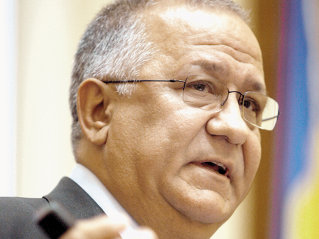www.zfenglish.com - Last update 23:04
BNR Keeps An Eye On Greek-Owned Banks, No Help Needed - Supervisory Chief
05.30.2011
Greek-held local banks are not affected by the problems faced by their shareholders in their countries of origin, where customers are moving their deposits abroad, and they have sufficient liquidity, says Nicolae Cinteza, head of the Supervisory Department of Romania's central bank, or BNR.
"No extraordinary solutions are needed. We are watching them closely and have made sure they have sufficient government securities," Cinteza told ZF, after banking system officials said the central bank could provide support even through loans guaranteed with real estate assets such as banks' registered offices, if the subsidiaries of Greek banks would themselves see significant outflows. Government securities can be used as collateral for loans from the central bank.
"This (using real estate assets as collateral i.
e.) is not a practice that central banks would resort to easily and it will not be necessary in the future, either," says Cinteza.Six Greek financial groups are present with subsidiaries on the Romanian market, cumulating EUR6 billion in deposits and nearly EUR14 billion in loans granted, making Romania the biggest foreign market for Greek banks.
Being licensed by the central bank, the Greek subsidiaries are required to hold capital and calculate their liquidity individually.
"The solvency of Greek subsidiaries is one point higher than the system average, of 15.73," says Cinteza. The solvency ratio is the most important indicator that the central bank follows, because it shows if a particular bank has enough equity capital to offset the risks it has taken. Moreover, any decision to provide liquidity to a bank is based on its solvency. Banks are required to keep their solvency ratio above 10%.
Last week came with a wave of negative news: with one exception, Greek subsidiaries were loss making in the first quarter, amid a spike in non-performing loans, while revenues remained under pressure.

